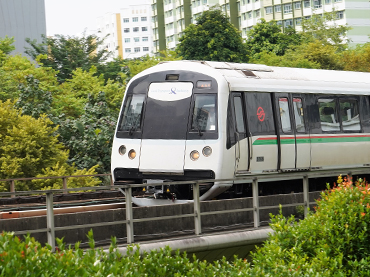Written Reply to Parliamentary Question on Update on Trial for Priority Carriages on MRT for Commuters with Mobility Needs
14 Oct 2024In Parliament
Mr Gan Thiam Poh asked the Minister for Transport
a. whether there is an update on the trial to create priority carriages on the MRT for less mobile and vulnerable commuters such as seniors and persons with disabilities; and
b. whether the Ministry will consider implementing such priority carriages sooner, to aid passengers who require the use of personal mobility aids on the MRT, particularly during peak hours.
Reply by Minister for Transport Chee Hong Tat:
1. A priority carriage is one where commuters are encouraged to give way to more vulnerable commuters by moving to alternative train carriages. With increasing ridership across all our train lines, there might not be sufficient capacity in alternative train carriages for commuters to move into, particularly during peak hours. This may lead to greater crowding in other carriages and create additional friction among commuters.
2. Therefore, it is more important and effective that everyone looks out for more vulnerable commuters using any carriage, and not just at one particular carriage. In addition to designated priority seats across all train carriages, priority queues have also been introduced since 2019, and service staff are also deployed to assist commuters who need help to board the carriages.
3. The Land Transport Authority (LTA) will step up efforts to improve the commuting experience for those with additional needs, including those with less visible conditions like chronic pain or arthritis. For instance, the Helping Hand scheme allows commuters who require assistance to alert fellow commuters and public transport staff through a card that explains their needs. LTA has also been increasing its outreach through the Caring Commuter Champion programme, which includes an online training course for those who wish to learn how to assist commuters with various mobility needs. As of September 2024, 16,000 volunteers have completed the training under this initiative.
